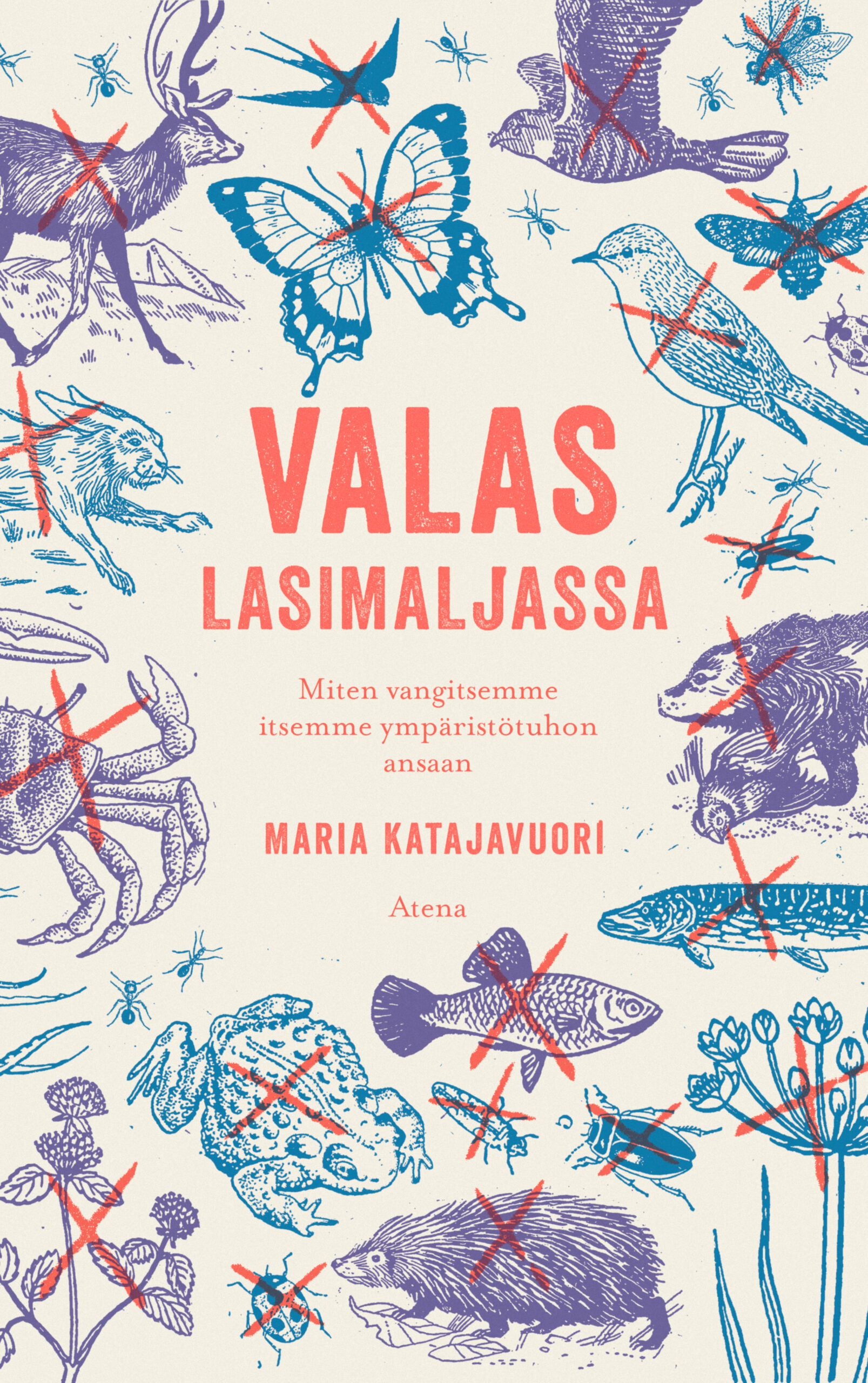Join the journey of a whale and a woman and uncover the keys to sustainability – the Earth can be saved with tools of human behavioral biology. Humans are like a whale in a glass bowl, trapped despite our big brains.
Climate conferences and science studies, carbon caps and environmental education – sensible methods to halt the ecological crisis seem to have failed. Rational, collaborative and moralistic ways to prevent environmental destruction might seem like good ways to promote sustainability, but the equation breaks down once we notice that our species is not as rational, collaborative, and moralistic as one might wish. We are biological creatures with biological limitations, and without acknowledging those limitations, we are doomed to boil the planet and crush the biodiversity of our world.
In her new book, young researcher Maria Katajavuori sets out to uncover what’s wrong with our current Earth-saving approach – and how to fix it. She visits falling forests, melting glaciers, as well as preposterous scenes of environmental policymaking, and, on the way, illustrates the issues of our innate tendencies through latest science on human behavioral biology. Vivid examples of flying squirrels, migrating trout, African penguins, and numerous other species reveal the paradoxes of good intentions with bad outcomes. An encounter with a beluga, the white whale of the Arctic, provides a parable for humanity’s struggle: like the swimming of whales, behavior of humans is steered by our genome, and we are having hard time pushing against the destructive urges.
Yet, the beluga parable also provides us with the solution: the behavior of whales can be transformed by changing their surroundings, by shifting a small aquarium pool to an open ocean, and likewise, the behavior of humans can be transformed by changing our societal surroundings. If we fine tune our economic system and decision-making to fit the biology of our species, if we re-design taxation and democracy based on what we know about our evolutionary history, we can fight our destructive tendencies as well as harness the power of our positive tendencies, those of collaboration and prosociality. At the end of the day, all that is needed is to remember: we are no more or less than whales.

 Loukko by
Loukko by 